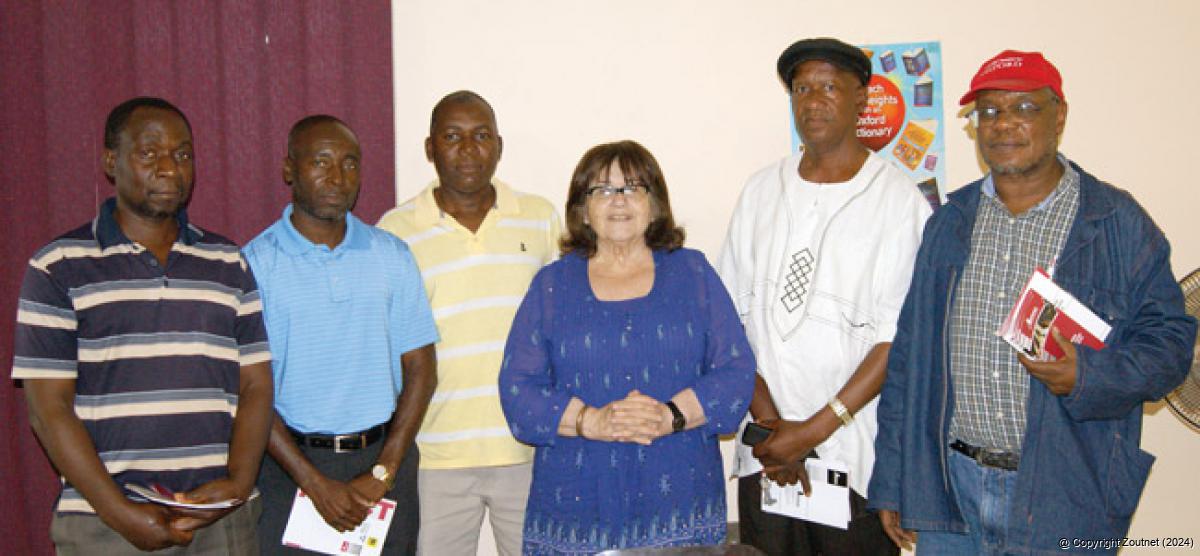

ADVERTISEMENT:

Photographed during the event are, from left to right, Rudzani Mafhege (author), Rudzani Tshianane (author and publisher), Khorommbi Phaswana (author), Monica Seeber, Nyamananga Phalanndwa and Maano Tuwani.
“Local writers must know their rights” Seeber
Literature
A group of local writers, a bookseller and publishing consultant convened a workshop on writers’ rights, issues of plagiarism, copyright and other literary matters at Guyo Book Service in Louis Trichardt last week.
Ms Monica Seeber, a publishing consultant and board member of the Academic and Non-Fiction Authors’ Association of South Africa (ANFASA), facilitated the workshop. She said that writers must know their rights when it comes to issues of copyright and signing publishing contracts.
“Copyright is usually considered a complex subject and many authors regard it as mysterious and even frightening,” she said. “But its basis is something simple: you own copyright in everything that you write, and copyright law protects your work from unauthorised exploitation by another person.”
In order to publish a writer’s story, the publisher has to have the author’s authorisation.
“This authorisation takes the form of a publishing contract in which the author grants permission in return for payment,” she said. “The payment usually takes the form of a royalty – a percentage of the money the publisher receives from the sale of the book. Publishing contracts are often long and complicated, but they need not be.”
The most important thing is for the author to understand exactly what the terms and conditions mean before signing on the dotted line. “If the author does not understand, he or she is entitled to ask the publisher to explain all the clauses, and the publisher is obliged to do so,” Seeber said. “ANFASA provides free advice to its members on publishing contracts. There should be a golden rule: No contract, no book.”
She said that the Internet made it very easy for lazy people who claim to be writers to plagiarise.
Seeber said that many authors subscribed to what she called the “10% myth”. “‘I am being ripped off. My publisher gives me 10% and takes the other 90% for himself’, they say,” she said. “In reality, the other 90% has to cover the publisher’s expenses: the printer, the editor, the designer and typesetter and the overheads, such as electricity, rent, computers, distribution, warehousing, and so on.”
The established poet, proof reader and editor, Nyamananga Phalanndwa, said that he wished there were more writers who attended the workshop. “The colloquium was quite effective,” he said. “This would also have benefited more writers since a lot of writers are robbed by publishers, due to a lack of knowledge and understanding of the publishing world.” He added that plagiarism was pure theft.
Entertainment - Date: 27 May 2015

Recent Articles
-

Legendary Solomon Mathase makes music with Dzomo la Venda
25 April 2024 By Elmon Tshikhudo -

Magau's music prophecy gets real
21 April 2024 By Elmon Tshikhudo -

Jah Saint's love of reggae shows
20 April 2024 -

Khathu's latest song captivate fans
20 April 2024 By Thembi Siaga
Search for a story:

ADVERTISEMENT


News Correspondent
Correspondent journalists from all over the region supply us with news and sport articles.
Email: [email protected]

ADVERTISEMENT:

